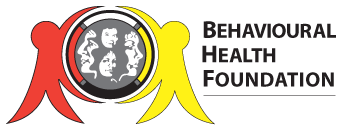The Behavioural Health Foundation Addiction Treatment Services is internationally accredited. The service is designed to provide long-term, residential programming for men, women and family units experiencing a variety of substance use and co-occurring mental health disorders. Using the therapeutic community model, members are offered graduated opportunities that will equip them with the necessary vocational, intellectual, and communicative skills for successful integration into society, allowing them to be free of addictive behaviours. The emphasis of the program is placed on promoting healthy living and teaching members how to make positive lifestyle choices.
Length
Program length is open-ended and based primarily on treatment progress. The recommended length of stay for either the adult or family program is a minimum 4 to 6 months, though it is not uncommon for some individuals to stay a year or more. Individual needs and treatment goals are usually the determining factors for the length of a person’s stay.
Components of our Program
- Integrated substance use and mental health treatment plans,
- Daily work routine,
- Substance use Counseling,
- Couples counseling,
- Parenting seminars,
- Outgrowing Addictions Seminars,
- Family Violence Prevention Education Sessions,
- Managing & Expressing Anger Seminars,
- Support for resident in self-advocacy,
- Provincial Court Services,
- Pre-sentence reports,
- Bail recognizance residence,
- Health and Wellness programs
- Norbert Adult Education Centre
- Two on-site licensed daycare centres,
- Early Years classroom – Kindergarten to Grade 6,
- Outreach/Follow up support on-site and at River Point Centre,
- Community transition housing,
- Follow-up/evaluation.
Mental Health
BHF supports the principles of the Co-occurring Disorders Initiative (CODI). BHF is a CODI capable facility. Residents are screened for mental health disorders, in addition to the routine screening of substance use.
Healthy Living
One of the primary goals of treatment is to expose residents to healthy living routines. Residents are taught the importance of healthy living and how it relates to long-term mental and physical health.
Dietary
Meals provided adhere to the Canada Food Guide. Residents are educated as to the long-term results of poor dietary choices, including risk factors for chronic disease and other health risks.
Admission Requirements
Adults who have been unable, through alcohol, and other substance use and many interrelated problems including mental health concerns, to function effectively in the community.
Adults whose lifestyles are such that they are regarded as having a living problem by their families, themselves, and/or their community and are interested in changing.
Adults, of all genders, of all ages, races, colors, creeds, or sexual orientations, with or without dependents.
Adults who have an ability to absorb and respond and carry out basic work routines.
Referral Process
A referral is required to attend residential treatment programs. Accepted referral methods include:
Self /Agency — An individual or agency can make referrals in person, by phone or email or by writing to the Intake Worker.
Detox /Addiction Withdrawal Units — Individuals may be referred after withdrawal is deemed sufficient by the staff of those units so that individuals no longer require medical monitoring during the withdrawal process.
Criminal Justice System — An individual in jail facing charges may ask for the BHF Court Communicator. If they wish to enter BHF, the Court Communicator will speak for them and in some cases, the Judge will remand the individual to BHF for a pre-trial period and pre-sentence report. If that individual has shown a positive response to the program, the Judge may probate the individual to live at BHF to be supervised by Manitoba Probation Services. When an individual has been sentenced to jail he/she can approach the authorities within the jail and ask to see BHF’s Court Communicator
In the case where suitability for the program has been ascertained, the individual could be granted a conditional release. In the case of an individual awaiting trial, a bail recognizance may be granted to allow that individual to enter the program.
Out of Province/Country – These types of referrals may be made. However, an individual’s acceptance is not only based on the admission criteria but upon suitable financial arrangements.
